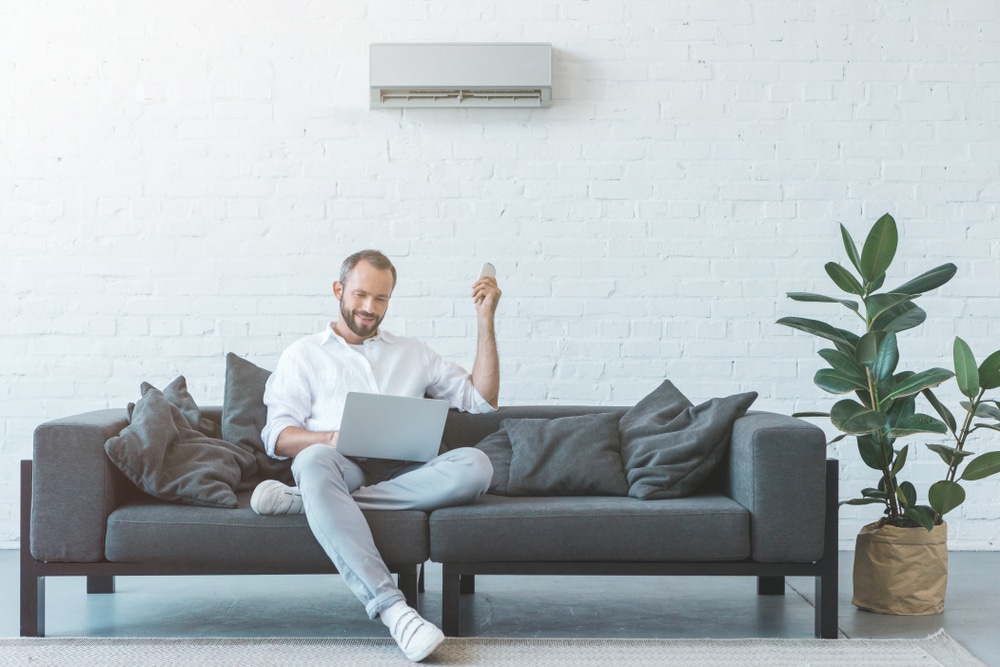There’s nothing worse than having an air conditioning unit sputter and die on a hot summer afternoon. There are many issues that can arise with an air conditioning unit which may cause it to stop working. Some of these will require professional repair, while some can be checked and fixed yourself, which can save time and money.
Here, we’ll take a look at five common issues that you can take care of yourself to get your air conditioning back up and running in no time. However, we also want to note that many of the problems we’re asked to troubleshoot can be prevented with regular cleaning and maintenance. (As they say, prevention is the best cure!)
Just want to ask the experts? Schedule a free consultation today.
1. Check the Fuse
If your air conditioning isn’t turning on at all, there are a few things you can do. First and foremost, check that the air conditioning unit is properly plugged in. If it’s still not working, it might be something as simple as a blown fuse or tripped circuit breaker. If you haven’t used your A/C unit for a while, it may also need maintenance.
2. Check Your Thermostat
This may sound obvious, but try checking the thermostat. Thermostats can easily be accidentally reset by bumping or rubbing against them, and if you haven’t had the A/C on for a few months, you may not have noticed. Even if it seems to be set correctly, try turning it down 5-10 degrees and making sure that it is set to cool. Make sure to check the manual so that you can be sure you’re setting it correctly. Turning it to one extreme can help to identify what exactly is causing the problem. If it doesn’t cool when set to the lowest setting, it is unlikely to be the thermostat itself that is the problem, and you can move on to looking for other issues.
3. Check the Filter
Air conditioning units filter air as it passes through the system. If this filter becomes clogged with contaminants, like dust or animal fur, air will not flow as it should and you’ll feel only a weak stream. Try removing the filter and looking through it. If you can still see through it, then this is unlikely to be the problem and you can move on, but if your filter is so dirty that you can’t see through, replace it and see if that makes a difference to your airflow.
4. Check the Condensation Drain
When an air conditioning system cools the air, it causes water to condense. This water has to be drained, because if an area is left damp for a period of time will begin to grow mold, algae and maybe even small plants. If these build up sufficiently your condensation drain may get blocked, which can cause your unit to malfunction or shut down entirely. Locate the outflow of your drain and check it for blockages, if you can, remove these with a small implement such as a screwdriver. If they are too far up the tube, suction with a shop type vacuum may do the job.
5. Check the Size of Your Unit
Air conditioning units are rated for the space they can cool. If yours is not able to cope on a normal summer day, it may be that you need a more powerful unit, or perhaps even a second one, to meet the demand. An A/C unit should be able to cool your home by 20-25 degrees, so if it is unusually hot out, it may not be able to cool your home to the level you need to feel comfortable. It’s also important to check age, because things don’t work forever.
If none of these tips helps in fixing your problem, it’s time to call a professional. Moore Heating can take care of your maintenance and service needs, and we stock a wide range of HVAC units, should you need a replacement.
Ready to get started? Call the experts today.


